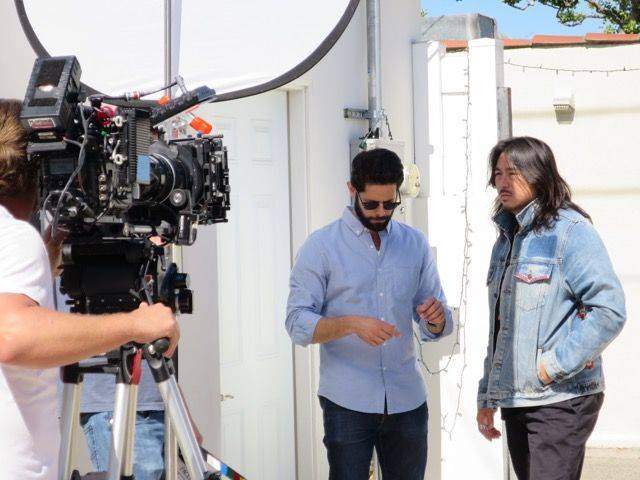
Currently, in postproduction, Pacific Park is already attracting major attention. The tragic event which triggers the story of this family struggle is all too familiar in the present day. The extraordinary cast is populated with faces familiar to American audiences including Michael Dempsey (of Golden Globe Winning ABC series Lost, triple Oscar-nominated Changeling starring Angelina Jolie, and Confidence starring Edward Burns, Rachel Weisz, and Dustin Hoffman), John Bubniak (HBO’s Golden Globe Nominated Barry and two-time Golden Globe Winner Girls), and Phillip Daniel (Golden Globe Winning NBC series This Is Us, Three-Time Golden Globe Nominated Nashville), among others.
However, it’s the performance of Australian actor Eddie Tang as Don which brings the darkness and surprise to this film. Though US audiences might be less familiar with Eddie’s work, like his fellow Australian actors who seem to be dominating roles in the States these days, Tang brings charisma and intense authenticity to his work. He’s menacing, dangerous, and extremely enjoyable as such in Pacific Park.
A year after Roy Beltran’s (Dempsey) death from prescription drugs, his family still struggles to come to terms with it. The youngest son (Wes/Bubniak) is withdrawn from his family, a trend that his elder brother Russell (Daniel) and mother (played by Milica Govich) hope to rectify. The catalyst for this family’s tragic course is Don (Tang). As Don, Eddie brings the subtle lure that brings others down. He’s a gambler, a drug dealer, and a pimp who is not as hard to find in real life as one might think. There’s always someone like this orbiting the edge of a normal life.
In addition to his research about drug dealers and sex trafficking, Tang relates a personal story that aided him in the role recalling, “I grew up in Australia and there were triad gangs in our suburb. My parents owned a restaurant which was below a snooker hall where these gangs would meet up. Violence and drug trade was evident and something I was aware of even as a ten-year-old boy. Even when you are young, you notice when there’s something different about people like that.”
A great film villain is one who isn’t highly overt in actions or intentions. Eddie personifies this in the film, so much so that one might be frightened of him in real life. Even though Russell’s father died from drug use, he turns to Don for his cocaine supply. Doing bumps and bonding in the back of the car, Don praises Russell’s sports career and encourages him to make some real money by fixing games and gambling on them.
When a full-blown party is underway, Don encourages Russell to get to know one of the girls, noting that he takes credit in lieu of cash. Herein lies the foundation for how Don will soon “own” Russell as well. Don is never pushy or domineering, his strength is in beckoning those around him to take the darker path. It’s a subtle and sublime performance by Tang and the obstacle/roadblock of crippling issues which hinders the Beltran family.
Though it sounds impossible for most of us to not see someone like Don as evil and unscrupulous, Eddie is adamant that he cannot impose judgment and fully realize a character like this. In real life, even the antagonist doesn’t seem like the “bad guy” and this is a concept that Tang adheres to.
He explains, “I couldn’t be authentic as Don if I were to judge my character from a moral, ethical, or religious standpoint. I’m a man of Christian faith, representing a character who is from a place of corruption crime, drugs, and prostitution. It’s something that I consider before taking on a role. However, the Bible is littered with stories of those who have had a life of debauchery & sin, full of criminal, murderous, and adulterous actions; yet they were used as examples of lives turned around for the greater good.
It’s important as an actor you don’t contaminate your choices with societal views, morality, or personal issues. That judgment becomes a form of censorship. And censorship contradicts art. Sometimes what looks like a horrible situation can be viewed as something positive.” See exactly what Eddie Tang is talking about when Pacific Park is released this year.
Author: Cecil McCoy